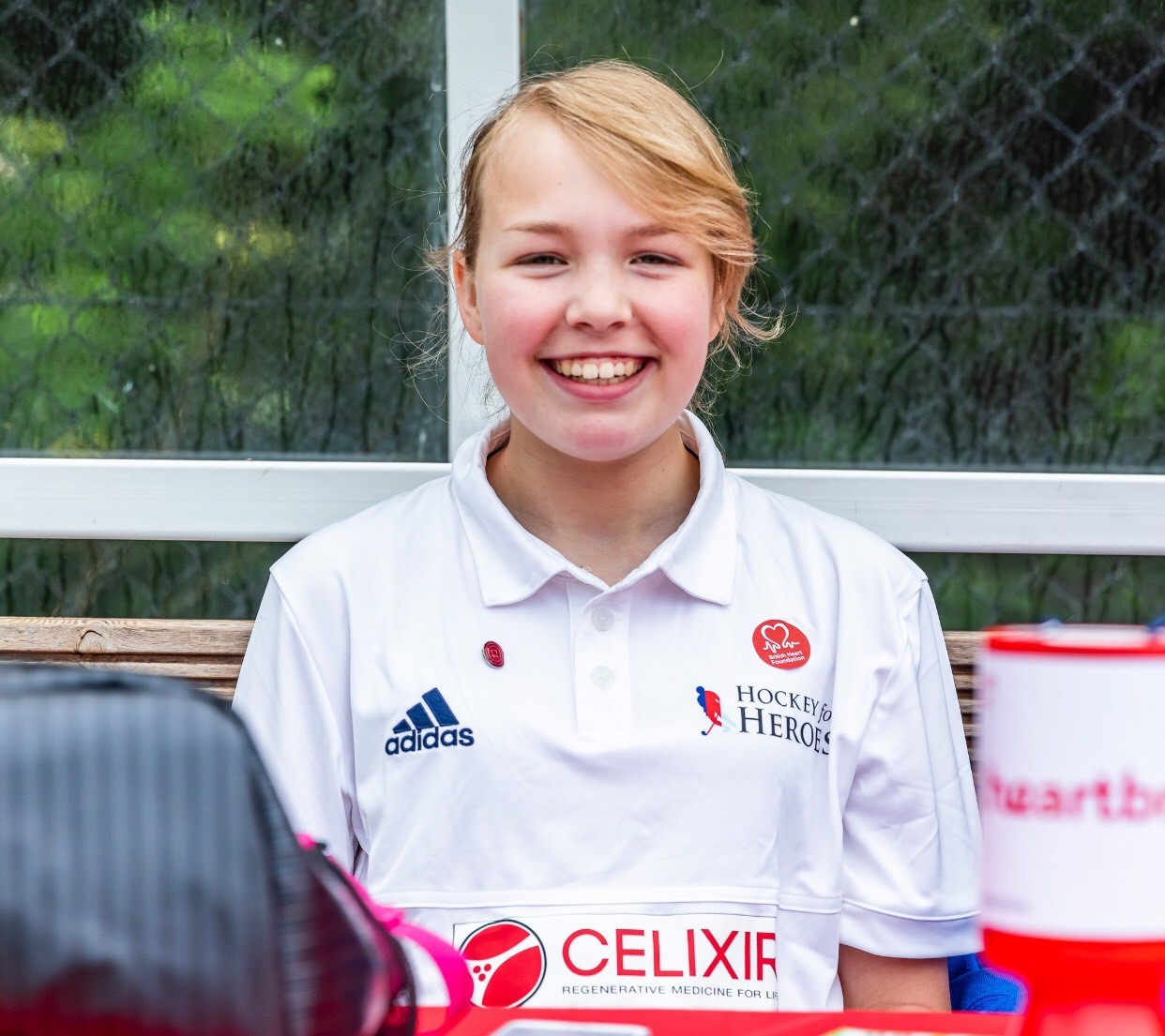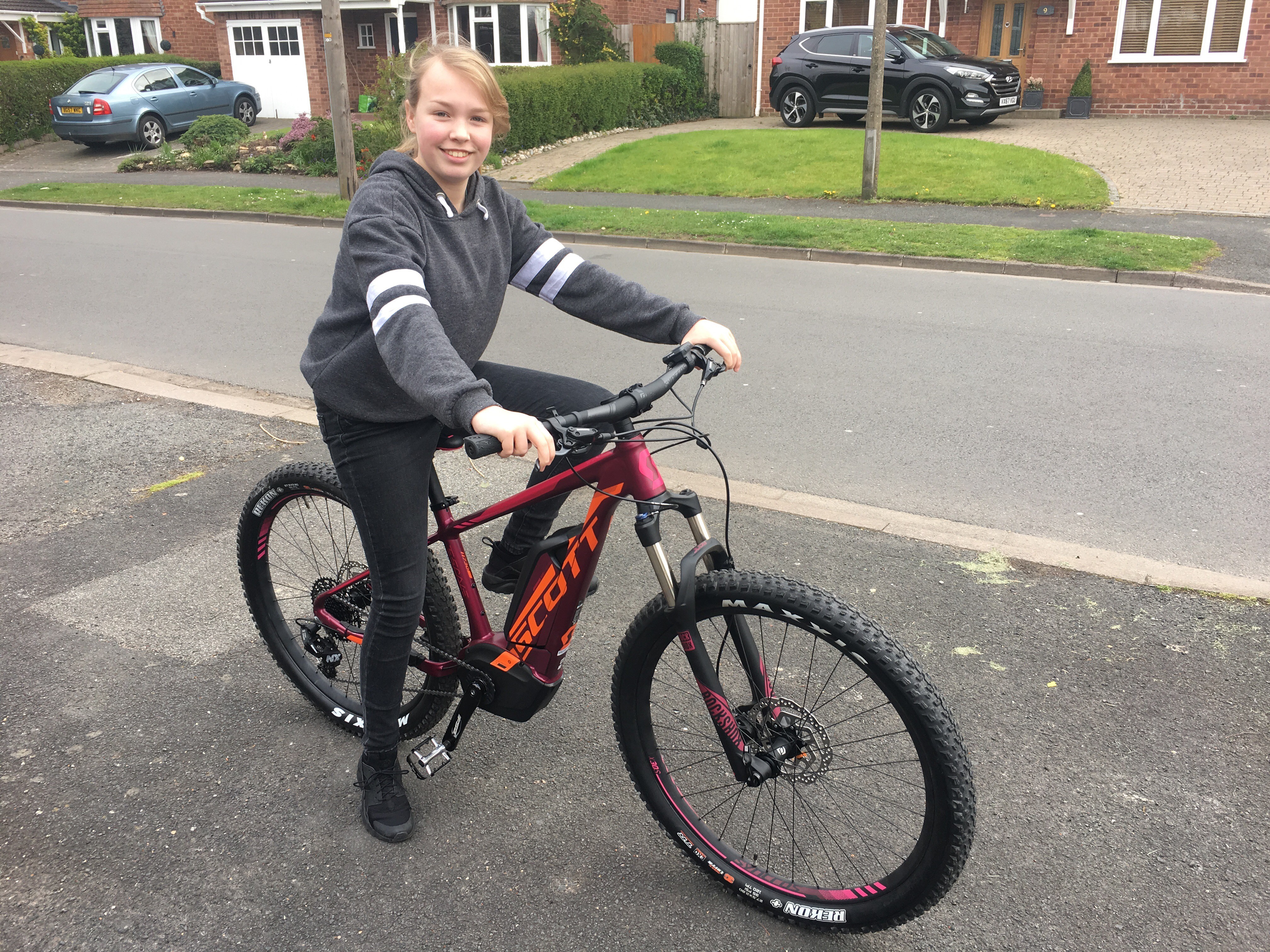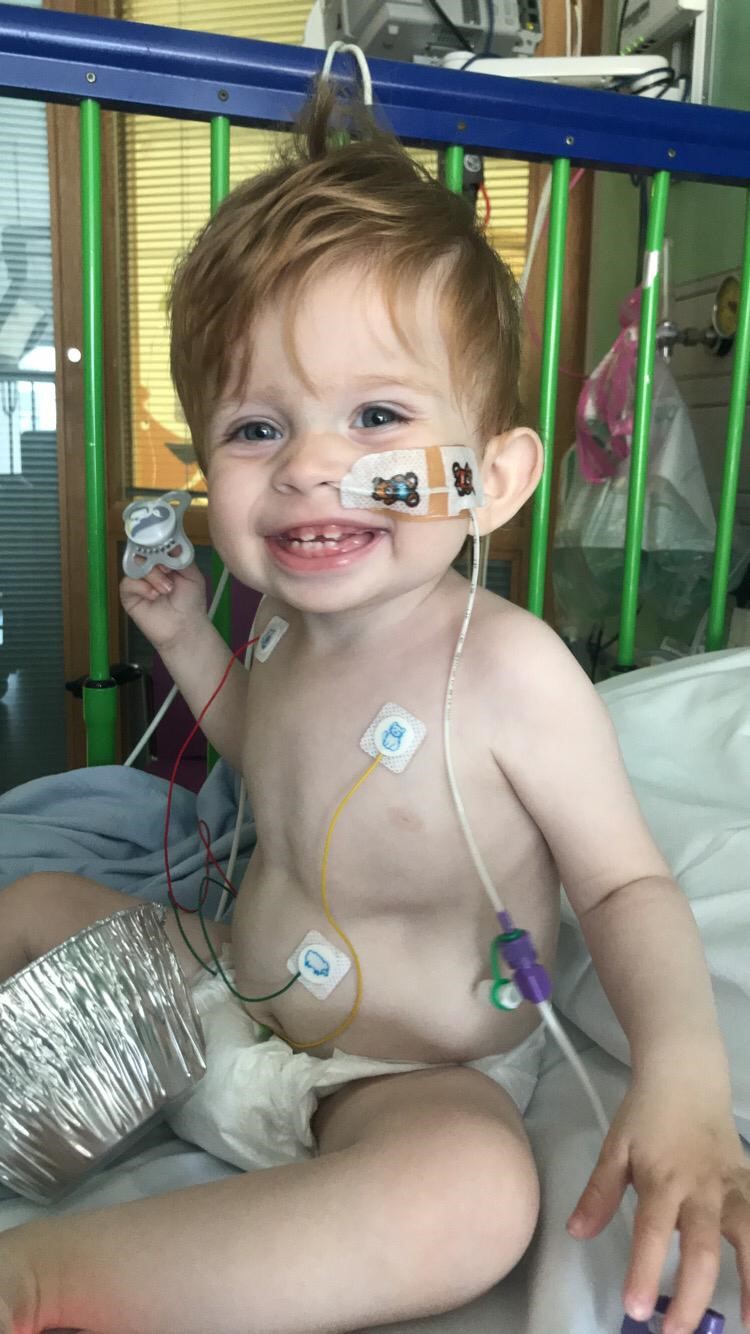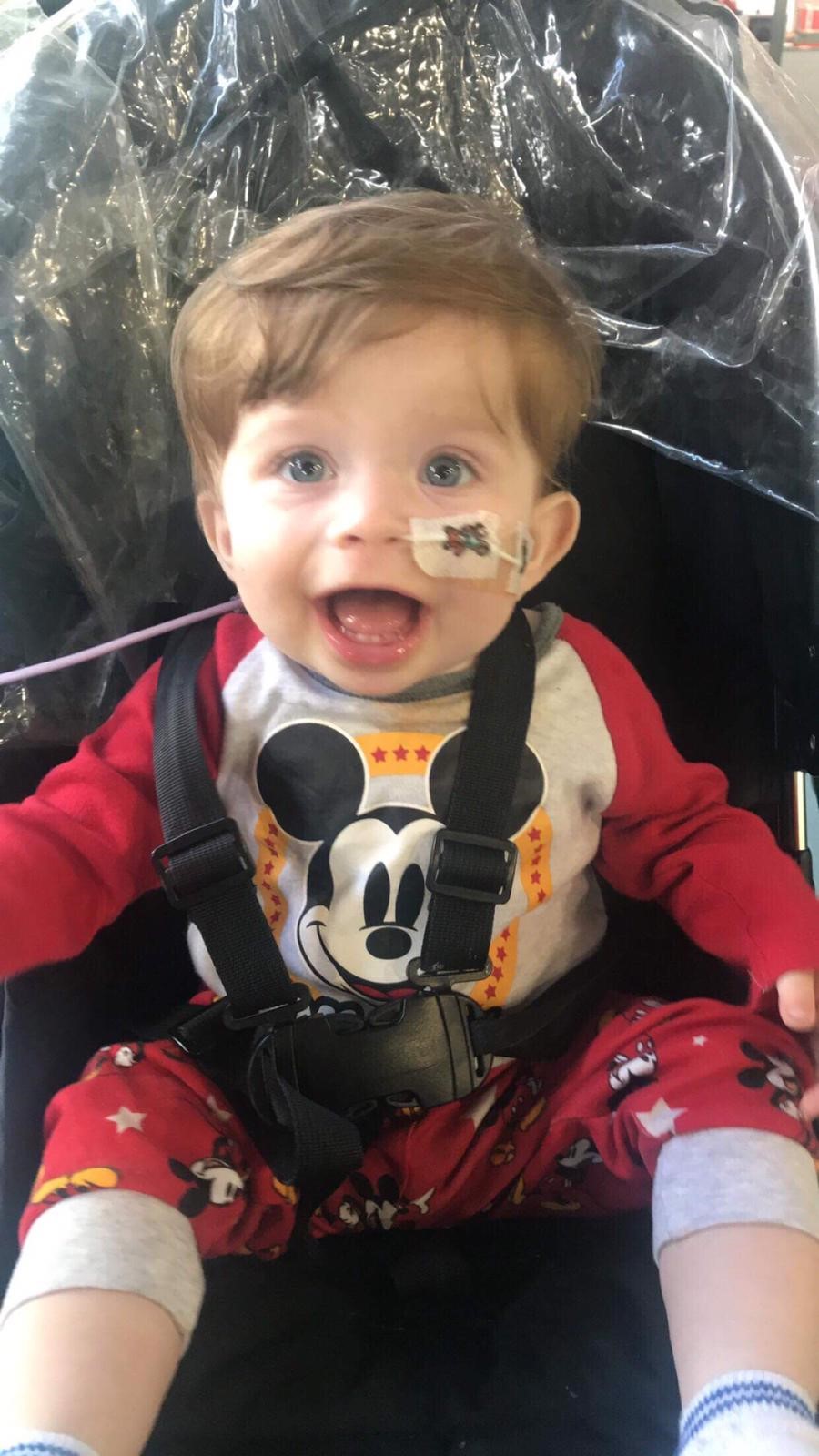What can you donate?
If you decide to become an organ donor, you can choose to donate either some or all of your organs.
Young patients wait on average more than two and a half times longer than adults for an urgent heart transplant.
Around one in four children on the transplant waiting list are in need of a heart (1) and young patients face a much longer wait for an urgent heart transplant than adults. NHS Blood and Transplant is highlighting these facts on World Heart Day (Sunday 29 September) in the hope that families will talk about organ donation and share their decision to help save more young lives.
There are 192 children in the UK waiting for organ transplant and 42 of them need a heart (1). It is particularly difficult to find a donor for children and babies in need of a heart. The size of the heart is important, meaning a donor of a similar size is needed (2).
As a result young patients face a wait for an urgent heart transplant that is more than two and a half times as long as for adult patients. The average waiting time on the urgent heart transplant list for adults is 30 days and for children in desperate need of a heart, the average waiting time is 79 days (3).
Anna Hadley, aged 14, from Worcester, has been waiting for a heart transplant for over a year.
 She has restrictive cardiomyopathy, a rare heart condition, which was only discovered after Anna collapsed in 2016, and again in 2017. It has left her unable to do many of the sports she loves and facing a heart transplant to save her life.
She has restrictive cardiomyopathy, a rare heart condition, which was only discovered after Anna collapsed in 2016, and again in 2017. It has left her unable to do many of the sports she loves and facing a heart transplant to save her life.
Anna says: “I am an extremely sporty person but because of my condition I have had to restrict myself. My heart can’t cope.
“I’ve had to stop doing some of the things I love to do. I’d just got into the county hockey squad when I was diagnosed so not being able to carry on with that has been the most disappointing thing.
“When I first found out about my condition I was extremely scared and frightened. We used to be on edge waiting for a call and every time the phone rang we thought that was it.
“We’ve now got used to it and I don’t think about it too much, we’ll cross that bridge when we come to it.
“A transplant would mean everything to me. I could go back to enjoying every day life and doing everything I really enjoy.
“I would feel really blessed and incredibly thankful to the donor and family that donated to me.
“It’s important to raise awareness of organ donation, people don’t really think about kids that need donors. Children also need donors so every family should have that conversation.”
Her dad Andy added: “We were absolutely devastated to get the diagnosis, there have been some very hard times and difficult conversations.
“But we keep positive, we’re the lucky ones, we get to go home from hospital and be together and live our lives as normally as possible. We’re making the most of life.
“We would ask everyone to talk about organ donation, parents, children, everyone and let you loved ones know what you’d want.”
Grayson Heagran was diagnosed with dilated cardiomyopathy when he was just 8 weeks old.
Mum Shannon Heagran, 25, from Peterborough, says “Grayson was born on the 21st April in 2018. I had a normal pregnancy and straightforward labour but I knew quite early after Grayson was born that something wasn’t quite right.
“I have three older children, Amelia, 7, Aidan, 5 and Riley, 2 and Grayson was nothing like them. He would take a long time to feed and his breathing didn’t sound right. I was assured it was normal at check ups but something didn’t sit right.”
Eight weeks later and still with this niggling feeling Shannon noticed Grayson’s breathing had changed and phoned 111. An ambulance was sent and Shannon and Grayson were rushed to the local hospital. The hospital thought Grayson might have a shadow on his lung but an X-ray discovered that Grayson’s heart was actually enlarged.
Grayson was rushed to Glenfield Hospital in Leicester where he spent two months in intensive care fighting for his life. Shannon was told that Grayson may not make it and to prepare for the worst.
Grayson was allowed home in September 2018. His heart condition was still very serious and he was transferred under the care of Great Ormond Street hospital in London.
Grayson’s condition was continually monitored until Shannon was told that a heart transplant was the best option for him. On Christmas Eve in 2018 when Grayson was just 8 months old he was officially placed on the heart transplant waiting list.
Grayson is now 17 months old and Shannon has been waiting for that call to give Grayson the gift of life for a long 9 months.
Shannon adds “Organ donation is so important but it is hard to understand how important it is until it touches your lives. I used to hear about it and think one day I’ll get round to signing the register but I never did.
 “Since Grayson became ill however my whole life has been given a new perspective. Before I would never have agreed for my children to be on the register, now all four of them are.
“Since Grayson became ill however my whole life has been given a new perspective. Before I would never have agreed for my children to be on the register, now all four of them are.
“It is hard for them to understand just how poorly he is and they miss me and him so much when we are away in hospital. Their Grandad helps out but family life has to be taken a day at a time.
“I have my phone by my side at all times hoping for that call. Hoping for a call that would give Grayson a chance at a life. A chance to grow up and go to school and spend time with his older brothers and sisters.
“Grayson is a fighter and tries to stay strong but all the time that he is waiting has an impact on his other organs. Right now we can only wait and hope that Grayson gets the call and a chance at a normal life that we dream of.”
For many children waiting for a heart, a young donor is their only hope. For some the call never comes, in the last five years, 42 children in need of a heart have died before an organ could become available for them (4).
Angie Scales, paediatric lead nurse for NHS Blood and Transplant, said: “For many children waiting for a heart transplant their only hope is that the parents of another child will say ‘yes’ to organ donation as their world is falling apart.
“Losing a child is a devastating but we know parents who agree to donate their child’s organs gain great comfort and pride from knowing that their child has saved the lives of other people, often young patients.
“We urge all parents to talk about organ donation, and not just for themselves but all members of the family, and what they would want if the time comes. Children can save lives too and there are young patients relying on a child to save their life.”
Minister for Care, Caroline Dinenage said: “Children in urgent need of a new heart wait over twice as long as adults. What an agonising time that must be for their parents.
“There are dozens of boys and girls desperately waiting for the right size heart. They are all someone’s child and all deserve a chance at life, and I will ensure we do all we can to encourage more donations and save more young lives.”
Next year, the law around organ donation is changing in England and Scotland. From spring 2020 in England and Autumn 2020 in Scotland, all adults (those aged over 18 in England and over 16 in Scotland) will be considered as having agreed to donate their own organs when they die unless they record a decision not to donate or are in one of the excluded groups. This system was introduced in Wales in December 2015.
The legislation will not apply to children. However it is hoped the introduction of the law will prompt more conversations among families and help save the lives of more young patients waiting for a transplant.
Currently, the number of young organ donors remains static. The latest figures, reveal there were just 56 child donors in 2018/19. The year before, there were 57 child donors, compared to 55 child donors in 2013/14 (5). During the same period the number of adult organ donors rose quickly with the number of deceased organ donors increasing by a fifth. (5)
Currently, parents that are asked about organ donation are less likely to donate a child’s organs for lifesaving transplants. Only 61% of families supported donation for a relative aged under 18 last year (2018/19). This compares to an average of 67% families agreeing overall. (6)
Children can join the NHS Organ Donor Register, although those with parental responsibility must give consent for donation after they die. Children in Scotland can self-authorise from 12 years of age. Parents can also choose to add their children to the NHS Organ Donor Register at any age.
In March 2019, NHS Blood and Transplant launched its first ever paediatric and neonatal organ donation strategy, aiming to make more lifesaving transplants possible, especially for young patients who often need organs matched to their size, like hearts.
To find out more or to register your decision on the NHS Organ Donor Register visit www.organdonation.nhs.uk. Please ensure you share your decision with your family.
The Children’s Heart Federation is supporting NHS Blood and Transplant’s World Heart Day activity.
Anne Keatley-Clarke, Chief Executive of the Children's Heart Federation, said: “While the circumstances surrounding organ donation from a child are difficult to contemplate and can easily stir the emotions, it is something that all parents should think about.
“It is wrong that children are waiting unnecessarily long periods of time for a suitable donor and tragic that sometimes they are dying before one is found. Clearly more child donors are needed so that a suitable match can be found, and lives saved.
“The Children’s Heart Federation (CHF) therefore urges parents to put themselves in the shoes of a parent whose child needs a life-saving heart transplant. Talk to your children about how they could potentially save another child’s life and then, with your agreement, whatever the decision, ensure your child’s wish is registered.”
Find out more about the paediatric and neonatal strategy